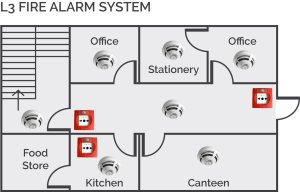Enhancing Safety and Career Prospects: The Benefits and Opportunities of Fire Alarm Training

In our rapidly evolving world, safety is paramount. Fire alarm systems are a critical component of this safety framework, protecting lives and property. As technology advances and regulatory standards become more stringent, the demand for skilled professionals in fire alarm system installation, maintenance, and monitoring continues to rise. If you’re considering a career in this field or looking to enhance your current skills, fire alarm training offers numerous benefits and opportunities.
Why Pursue Fire Alarm Training?
1. High Demand and Job Security: The need for fire alarm technicians is growing, driven by increasing safety regulations and the expansion of commercial and residential infrastructure. This demand ensures a stable career with job security across various sectors, including construction, healthcare, education, and government.
2. Competitive Salary and Benefits: Fire alarm technicians often enjoy competitive salaries that reflect their specialized skills and knowledge. Additionally, many employers offer comprehensive benefits packages, including health insurance, retirement plans, and paid time off.
3. Making a Difference: By ensuring that fire alarm systems are correctly installed and maintained, you play a vital role in protecting lives and property. Your expertise can help prevent catastrophic losses and ensure that buildings are safe for occupants.
4. Career Growth and Advancement: The fire alarm industry offers numerous opportunities for career advancement. With experience and additional training, you can move into roles such as project management, system design, sales, or technical support. Continuous professional development is a hallmark of this field.
The Importance of Comprehensive Fire Alarm Training
To excel in the fire alarm industry, thorough training is essential. Comprehensive training programs cover various aspects of the job, equipping you with the knowledge and skills needed to succeed.
1. Technical Skills: Training programs provide hands-on experience with the latest fire alarm technology, including system installation, wiring, programming, and troubleshooting. You’ll learn how to work with different types of fire alarm systems and components, ensuring you can handle a wide range of scenarios.
2. Regulatory Knowledge: Understanding local, state, and national fire safety codes and regulations is crucial. Training programs teach you about the relevant standards, such as those set by the National Fire Protection Association (NFPA), ensuring compliance and enhancing your credibility as a technician.
3. Inspection and Maintenance: Regular inspection and maintenance are key to the reliable operation of fire alarm systems. Training includes procedures for testing and maintaining systems, identifying potential issues, and performing necessary repairs.
4. Emergency Response: Fire alarm technicians must be prepared to respond to emergencies effectively. Training covers emergency protocols, including how to address alarm activations, coordinate with emergency responders, and ensure the safety of building occupants.
5. Communication and Reporting: Clear communication and accurate reporting are vital in this field. Training programs emphasize the importance of detailed documentation, effective communication with clients and team members, and reporting findings to relevant authorities.
Seizing Opportunities in the Fire Alarm Industry
The fire alarm industry offers a wide range of opportunities for growth and specialization. As you gain experience and expertise, you can explore various paths to advance your career.
1. Specialization: Specialize in areas such as system design, code consulting, or fire alarm system sales. Specialization allows you to become an expert in a specific field, increasing your value to employers and opening doors to higher-level positions.
2. Certification: Obtaining certifications, such as the National Institute for Certification in Engineering Technologies (NICET) certification or manufacturer-specific credentials, can enhance your qualifications and demonstrate your commitment to professional excellence.
3. Networking: Join professional organizations and attend industry conferences to network with peers, learn about the latest trends, and stay informed about new technologies and best practices. Networking can also lead to new job opportunities and collaborations.
4. Continuing Education: Stay current with industry advancements by participating in continuing education programs. Many employers offer ongoing training opportunities to help you stay ahead in this dynamic field.
Conclusion
Fire alarm training is more than just a stepping stone to a job—it’s an investment in a career that combines technical expertise with a commitment to safety. By pursuing comprehensive training and continuous professional development, you can unlock a world of opportunities, protect communities, and achieve success in the growing fire alarm industry. Take the first step towards a fulfilling and impactful career in fire alarm systems today!
4o
great content,how do i get started???